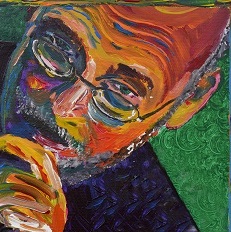FUMBLE!
Football and hospital medicine are not so different.
The 2020 Supreme Bowl between archrivals the Southern State Jaguars and the Pacific Tech Panthers looked to be all but over, as the Jaguars were just a play away from a 27-24 victory. It would be the first college championship in the football program's history. Southern State had the ball with just 23 seconds to go, and the Panthers had no timeouts left. All the Jaguars had to do was kneel the ball to run out the clock, and they'd win. Alumni and students waited expectantly for the celebration that would follow.

The leadership of Serenity Regional Hospital would be meeting at the end of the month. The new hospitalist pilot program appeared to be going quite well. Initial data on length of stay, readmissions, and most importantly, patient safety all showed improvements. The board would have to decide whether to continue to fund this program.
Senior quarterback Tyler Gray lined up under center. Gray smiled as memories of his path to this point ran through his head. He had hoped, but never expected, to be the team captain. In high school he had received little interest from college teams. As a walk-on his freshman year of college, he was nearly cut from the roster, but he worked his way on to the varsity squad and eventually started the final game of his sophomore year. He never let up and had become one of the school's leaders in touchdowns and passing yards. He spoke some words of encouragement to his teammates in the huddle, but all he could think about were the professional scouts in the stadium.
Leo Cranston loved being a hospitalist. He had graduated somewhere in the middle of his medical school class and completed his internal medicine residency at the same university. He had briefly considered specialization but decided in the end that he liked the inpatient environment. And now he was running a small hospitalist group, trying to land a juicy contract with the Serenity Network. He had to finish his signout so he could get to his meeting in the C suite.
The starting center was focused on the stands, waving his helmet in triumph, getting ready to celebrate with his family and his new girlfriend. The coaches had little concern about sending freshman Arthur Richards in to snap the ball for the final play of the game. Richards had taken hundreds, if not thousands, of snaps in practice. This was simultaneously the easiest and most difficult moment of his young career, and the first time he'd stepped on the field for regulation play. The current starter would graduate after the season. This was a moment, albeit a small one, for Richards to show he belonged on the field next season on a permanent basis. This was a big step toward something he'd always dreamed of and the true beginning of his college career.
Charlie Thompson was early for his shift. He was rested after a week off and excited to take handoff from Dr. Cranston, who had been his senior resident when he was just a medical student. He was proud to be part of the team and knew this group would be expanding. He wanted to be part of building something. He ran through the checkout list. It was surprisingly sparse, but he knew that his boss was running behind.
Gray and the rest of the offense swaggered up to the line of scrimmage. He called for the snap. Richards put a little too much power on the ball as he handed it between his legs to his quarterback. The ball rolled under Gray's feet and down the field, with a pack of Panthers chasing after it. The fans were stunned by the fumble. With reflexes honed by years of field time, Gray pivoted quickly and leaped forward, falling on the ball, and held on to it for all he was worth as bodies piled on top of him, unsuccessfully trying to wrench the pigskin from his hands. The Jaguars retained position, the whistle blew, and the game was won.
Charlie Thompson rested his feet up on the desk, sipping one last cup of coffee before hitting the ward, running the list of 14 patients that had been handed off to him. There were solid notes from the day before, but the signout items were not complete. However, there didn't seem to be too many complex patients. There were a few endoscopies, a couple of patients with cellulitis, and the most confusing, a cognitively impaired gentleman who had transferred there with inexplicable abdominal pain and was getting a CT angiogram that morning. These were mostly routine cases with minimal psychosocial complexities. Charlie glanced at the giant sheaf of outside records on the patient with abdominal pain, grimacing slightly as he began to review the poorly printed notes. Suddenly, he noticed something. This patient was noted in the paper records to have a severe contrast reaction, but the EHR showed no drug allergies. He leaped for the phone and called radiology, halting the contrast administration at the last second.
Whether a football or the care of a patient, the handoff is crucial and a time ripe for unexpected error. An alert team member may make the save, but the risk is always there. Paying attention during this crucial juncture is key. At all costs, avoid the call of “FUMBLE!”



